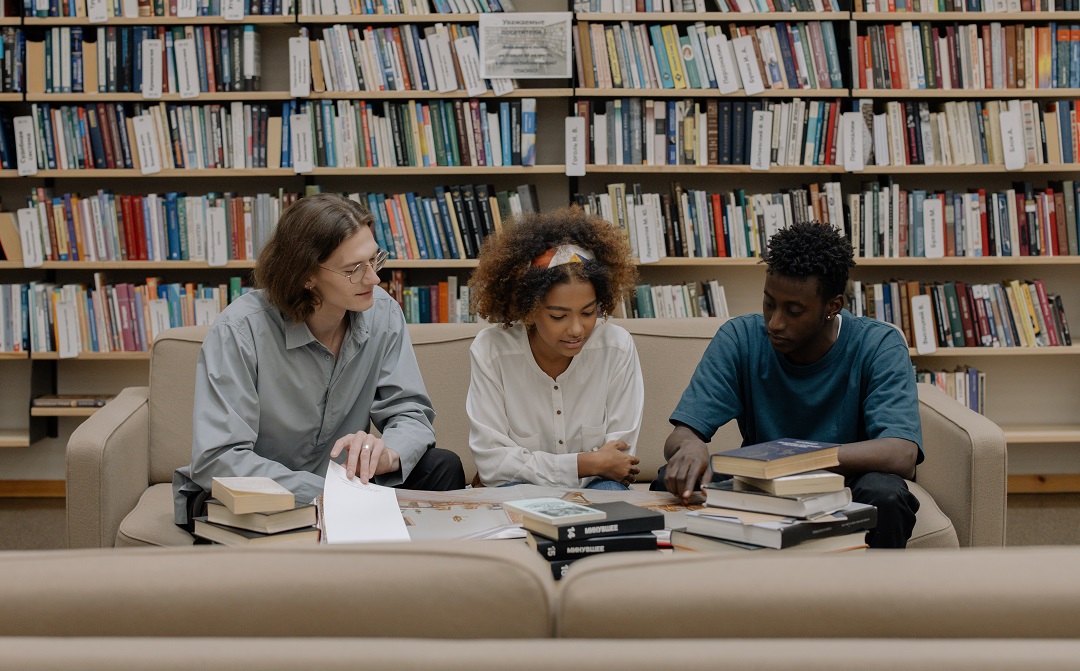It’s no secret that communication skills are an important part of both personal and professional success.
Whether you’re a manager, software engineer, or executive assistant, apart from having excellent hard skills, effective communication is the key to getting things done and achieving goals.
If you’re unsure about your communication strengths or how to leverage them effectively, the HIGH5 strengths assessment can provide invaluable insights. By taking this comprehensive test, you’ll gain a clear understanding of your unique communication abilities and how to apply them in your profession.
This article will not only cover the importance of communication skills but also guide you on utilizing the HIGH5 assessment to identify and optimize your strengths for success across various roles.
23 effective communication skills
Active listening
One of the most important things to do when communicating with others is to listen.
Effective and active listening means more than just hearing what someone is saying; it also involves paying attention to non-verbal cues (facial expressions, posture, etc.) and being able to follow up on a comment or question.
Active listening skills can help you acquire better relationships with your clients, boost your positivity, and allow you to better understand others.
Nonverbal communication
The way you say something is just as important as what you say. More than 70% of our communication comes from nonverbal cues. So your nonverbal communication skills play a major role in your ability to be an excellent communicator.
It’s up to you to not only make sure that your message is clear but also that it’s being interpreted in the right way by using a variety of different forms of expression such as facial expressions and tone.

Public speaking
Whether you’re giving a presentation or addressing an audience at a conference, public speaking can be nerve-wracking for many people. But it doesn’t have to be so scary if you know how to prepare yourself before an event and build your confidence through practice.
Conflict resolution
For example, whether you’re in sales or support, there’s nothing worse than hearing that someone is disappointed with your service and that is where conflict emerges. While it might not be possible to retain every customer and resolve every conflict, it can be helpful to know some basic steps for conflict resolution.

Negotiation
Negotiation is not just important for salespeople, realtors, and businesspeople. It is used by most individuals on a daily to weekly basis. When you want someone to do something for you, you must do something in return.
It’s all about fair trade and communication. If you can master negotiation, you can boost sales, make more profit, get better deals, and be more efficient.
Presentation
Whether you’re giving a presentation at work or meeting potential customers, presenting well is one of the most important job skills that anyone entering the business will need.
Not only is it important to know your subject, but it’s also crucial to know how to deliver that information in an organized manner. This ensures that your audience can understand what you’re actually trying to say.
Written communication
Written communication comes in multiple forms. For example, any time you text someone or write an email, you are using this form of communication.
With the world becoming more digitalized, knowing how to communicate in written form is becoming more and more important. You can try adapting your communication style depending on the medium, for example.
Using the right communication medium
There are many ways to communicate. The medium you choose, whether it be a cell phone, Instagram, Facebook, Snapchat, LinkedIn, or in-person communication, will have an impact on the outcome of your communication.
Knowing which medium to use when is truly a skill that you need to master. If you are speaking to someone formally, for example, in person may be the way to go. But, casual conversations over LinkedIn can make you seem more relatable and relaxed to clients, which could be positive.
Kindness
Kindness is great, and it is included in communication. Being honest and friendly can make you more approachable. It will also make you more positive, help you build bonds with clients, and make your relationships long-lasting.
Even small acts of kindness can go a long way. It will increase your own positivity, too. When having contact with people, remember to sprinkle in acts of kindness to make the interaction more memorable.
Confidence
Confidence is key in any industry. When you present yourself with confidence, you are seen as an authority figure and are thus more trusted. Improving your confidence starts with changing your mindset.
Then, you can also change how you present yourself. Start making more bold statements if you truly believe them. Look people in the eye, and don’t back down from your statements.
Feedback
Knowing how to give feedback is essentially as important as receiving it. Just like you want to know your strengths and weaknesses, so do others. You can practice your communication by giving honest but polite feedback.
It should also be individualized to the person, and try to answer the questions as precisely as possible. If you want to know how to give feedback, look at the way others give feedback to you. Note why the feedback resonated with you and how you can improve your feedback delivery from others’ input.
Clear and audible
You can master a speech and remember it perfectly, but that will not matter if you aren’t heard when you speak.
You need to speak clearly so others understand you. However, being too loud can be distracting and even rude. So, it is best to balance your loudness and adjust your volume according to others’ reactions.
Empathy
Empathy comes in two parts: you must connect to those you speak in an emotional level, and change your responses accordingly. This is crucial both in the long and short term.
Having empathy will also help you better understand emotions, including your own emotions. It will allow you to learn from others and be open to personal change. So, there are many benefits that come along with empathy besides just communicating better.
Respectful
If you want to be respected, you must first respect others. Disrespectful people are generally not well-received by clients or coworkers. They struggle with forming bonds in the workplace, and they rarely meet their professional goals as a result.
Respectful communication ensures keeping eye contact appropriate, being attentive, and listening to those around you.
The right tone of voice
The tone of voice is one of the many factors that make up communication. It leaves a major impact on those you communicate with.
If you use the wrong tone with those you communicate with, you can come off as arrogant or rude. To avoid this, ensure that you stay aware of your tone and match it to suit the scenario you are in.
Eye contact
Eye contact is another key communication element effective communicators know how to utilize. It can help you reveal your inner feelings, show you care for others, and boost your authority in a situation. You should also observe the eye contact of others to see their true emotions and interest level.
Persuasion
Persuasive communicators are often some of the most successful individuals in their industries. Persuasion allows you to boost your sales abilities, negotiate better, and generally perform better at work. It allows you to land clients and build businesses, too.
Responsiveness
Do you wait for hours, days, or weeks to respond to emails? Or, do you quickly respond to those who need your support and input? Being responsive allows to stay involved in your business.
It keeps you on top of tasks and boosts productivity. In addition, it also leaves a positive impression on those you communicate with. If you respond with urgency, regardless of what the message is, you will grow to be a more efficient communicator with a positive reputation.
Bravery
Just like confidence is a major element of communication, so is bravery. Imagine you are in a meeting room. If you avoid speaking up for yourself because you lack bravery, your speaking abilities will be been massively underdeveloped.
If you do speak up for yourself, you will also become more confident, gain new opportunities, and feel more satisfied with your performance at work. You will feel like you are in action instead of just watching on the sidelines.
Social media and digital communication
Social media and casual communication is also on the rise. Ensuring you master this form of communication can help you stand apart from the competition. However, you cannot use the same communication style for every social media you use.
For instance, clients’ direct messaging you on Instagram requires a different communication style when compared to Linkedin.
Networking
Communicating with those during networking requires a specific type of communication. These people are professionals, and they require high levels of persuasion to be convinced.
To truly connect with those you network with and form long-term bonds, you have to master the unique style of communication networking. To do this, work on improving confidence, persuasion, and nonverbal communication.
Emotional control
Effective communicators know how to keep their emotions in check. By ensuring that your emotions are in check, you can help others understand you better and more clearly communicate your message.
Being viewed as too emotional hurts your career opportunities and limits your ability to effectively communicate. On the flip side, using too little emotion makes you seem boring. It’s about striking a balance.
Engagement
Whether you are giving a presentation or simply talking to a coworker, you don’t want to lose their attention. Ensuring they stay engaged will help you make the most out of each interaction.
You can boost engagement by using certain hand gestures, using the right tone, maintaining eye contact, and asking the listener questions.
What are communication skills?
The definition of communication is to provide, share, and exchange opinions, feelings, thoughts, or information with another person, group, or audience using some form or shape of expression.
It helps when you can convey your ideas so that others can understand them and achieve a common goal. Communication is a very important soft skill that a person can have.

Although people may practice these skills on an everyday basis without even thinking about it (when ordering at a restaurant for example), being able to verbalize yourself in a way that both you and your audience will understand can be challenging. But there are ways to improve this skill through study and practice.
Effective communication has five key components:
- knowing what message to send
- knowing how to send it
- knowing your audience
- anticipating their response
- understanding how you are being perceived.
4 types of communication skills
The following are the four types of communication that you should keep in mind at all times:
Verbal
This type of communication is tied to how well you can speak. Verbal communication is still considered the more formal method of giving out your message. It can be done through face-to-face conversations, meetings, telephone calls, etc.
The advantage of verbal communication is that it’s instantaneous and easy but it has its limitations. If for example, not everyone wants to listen to what you’re trying to say.
Moreover, when people want to say something at the same time during a meeting, there’s bound to be conflict because no one can get their message across if everyone starts talking at once.

Written
While most people prefer speaking directly with another person to communicate better, writing messages can convey complex messages.
All you have to do is try and make each word count because it is sometimes easier to get misinterpreted when compared to sharing a message verbally.
Be mindful of how much text you’re sending out, especially in this age where everyone’s busy and has their time limit when it comes to what they read daily.
If the person doesn’t get back to you immediately or replies all that often, re-read whether your message needs more work before following up.
Nonverbal
This type of communication is based on how we say things as opposed to what we say. Body language and voice intonation are both important here.
Body language refers to how you carry yourself when you’re talking with someone – whether you’re standing in a particular way or crossing your arms to show that you are upset about something both convey different messages.
Voice intonation is the tone of voice you use to communicate which can be in any emotion like happy, sad, sarcastic, etc.
Nonverbal communication is a very important factor for building relationships because it helps people feel closer to each other.
Visual
This type of communication helps people understand more than just words. It allows us to express what we’re thinking or feeling when there’s no sound.
Visual communication is also the easiest way for those with a hearing impairment to be able to communicate.
How do you identify and develop your communication skills?
Now that you know of some of the strengths included in communication, you may be wondering: how do I acquire these abilities? Before you sign up for expensive strength-building programs or spend hours researching strengths, know there is a better way.
This hidden strategy is quite simple: taking a straightforward online assessment. One of the best strength tests you could take is the HIGH5 assessment.
This test will not only give you a list of your communication skills, but it will also include other strengths, like independence, organization, and more. This test can be taken in a single sitting, too. And, best of all, it’s free to take.
There are a few other ways to better understand your communication strengths. You could look back at some of your crucial presentations and key times when you used communication skills.
Then, ask yourself: what did you do well? What helped you achieve success? You could even ask others for some help if you are unsure. However, this takes more time and effort than simply taking an assessment, and it may also be less accurate.
How do you improve your communication skills?
The following are 9 effective processes & techniques of how you can improve your communication skills.
Observe good communicators around you
As cliche as it sounds, a good way to learn how to improve communication skills is by watching the people around you. By just observing them, you can find out what makes them stand out among others.
Practice improving communication habits
If you’re serious about improving your communication skills, it’s better to start with the little things first. What this means is that you don’t need to constantly bombard the people around you with new and improved habits all at once.

Take classes or courses
If you want some people who are experts in building their communication skills to guide you along, then taking classes might help.
Your local college probably offers free courses for adults who want to pick up a few things during their spare time and if they don’t offer anything yet, there are plenty of online options to choose from these days.
Asking questions
One of the simplest ways to improve communication skills is by simply asking questions and listening intently to what people have to say in response. Instead of interrupting someone right away, let them finish speaking before you start talking.
If they’re trying to tell you something very important, then don’t zone out while they talk because that’s a very good way for misunderstandings to occur.
More active listening
Sometimes, we might miss out on what others are saying if we don’t pay attention well enough. We also tend to lose focus easily when it comes to deep conversations so try putting your phone away and avoid doing other things at the same time.
Not only will this help improve your concentration but it’ll also show that you’re interested in what they’re saying which is the first step to good communication.
Nonverbal communication
Just like written communication, you also have a lot of room for improvement when it comes to your non-verbal cues. Greet people with a smile on your face whenever you see them and try standing closer during conversations. This will show that you’re interested in what they have to say and happy to be around them too.
Avoid disagreeing
Not everyone knows how to disagree correctly so avoid doing so if you want a peaceful conversation. Instead of arguing back right away, just let it go for now and save it for another time when both of you can discuss things calmly.
Arguing all the time is very counterproductive and you’ll just end up losing a lot of friends with this kind of attitude.
Be empathetic
If someone is talking to you about something very personal, don’t ignore their feelings. Try being empathetic by showing that you understand what they’re going through and make sure they know that you’re there for them.
This will go a long way since it’ll give them the motivation they need to talk about things in the future.
Practice, practice, and practice
The final way to improve your communication skills is by simply practicing what you’ve learned. If you know that a particular approach works best for you then stick with it until it becomes part of who you are.
Pro Tip From HIGH5
After taking the HIGH5 assessment, review your top communication strengths and consider how you can intentionally apply them in your daily interactions. For example, if active listening is a top strength, consciously practice being present and engaged when others are speaking, rather than formulating your response. This deliberate focus on your strengths will accelerate your skill development.
20 real-life benefits of using your communication skills
The benefits of having good communication skills are endless. Here is a list of just 20 examples:
- You can reach your goals faster because you’ll be able to get through any problem with ease.
- That promotion will be yours because people will trust you and want to work with you on projects instead of against you.
- Making new friends will be simple since everyone naturally gravitates toward those who can express themselves well.
- People will see that you care about them which means they’ll also reciprocate in return.
- You won’t have time to create enemies because people will always appreciate what you say – whether or not it’s what they want to hear.
- People will follow you without a fight because everyone knows that as long as there’s a leader who can express themselves, success is guaranteed.
- You’ll be able to deal with difficult situations to get closer to understanding other people and what they need from you.
- You’ll be able to put yourself into other people’s shoes so both sides will understand each other and find a solution that works for everyone.
- Nobody can blame you for misunderstanding them
- If other people’s opinion matters a lot then you’ll always know how to appreciate their input and implement it into your own life to reach the next level.
- If there are things that you’ve been wanting but don’t know where to start – well, it’s all going to be easier now since you can express what you need better.
- You’re not afraid of new challenges because this is just another opportunity to show off your communication skills by helping others learn more about themselves and what they want.
- Everyone gets nervous, but the right communication skills can help ease that stress before it becomes something else.
- You’ll be able to express yourself without feeling like you’re interfering with their lives.
- When you’re passionate about something then you’ll have no problem sharing that enthusiasm with everyone around you – even if they think your topic of interest is boring.
- You won’t feel helpless anymore because now you know how to get through any problem that you might have to keep going.
- You won’t waste time wondering how other people are feeling because you’ll know what they want from you and how to give it to them.
- Meet new friends and don’t be surprised when they’re just as excited about your new positive attitude toward communicating
- If there’s a group project then you’ll always get the opportunity to shine since everyone knows that communication is key for success …
- Never again will you feel embarrassed because of miscommunications that were already inevitable with other people.
How to highlight your communication skills?
Have you ever wondered why there are people who get ahead in their careers so quickly while others seem to always be stuck in the same place? Well, it all comes down to one simple thing – communication skills.
If you want to get noticed, then you have to stand out somehow and what better way is there than to show your communication abilities off?
Communication skills on your resume
Your resume is an important part of the application process so make sure you’re always updating it with new hard and soft skills that might improve your chances.
Don’t be afraid to list down some things that are unique to you because employers will know that these are the things you can do and will give them a reason to hire you instead.
You don’t necessarily have to list everything on your resume but at the same time, it’s also good to be ready if they ask for examples during interviews.
Communication skills in your job interview
Your resume is not the only thing that will get you hired because a job interview is a two-way street. If they’re asking you questions, make sure you have enough examples of your communication skills ready.
That doesn’t mean bragging about your abilities and claiming that everything was easy. You also don’t want to come off as arrogant so make sure you give an example of how good your communication skills are, instead of just saying something like ‘I’m a fast learner’ without any proof.
Not everyone has a natural talent when it comes to communicating with other people which means there’s room for improvement during work.
Communication is considered to be one of the most vital skills that you can have as an employee so employers will expect you to be able to communicate properly in business situations.
Communication skills in the workplace
In the workplace, communication skills are essential for success. They help manage conflict, boost teamwork and productivity, and keep morale high even in difficult situations.
When communicating effectively with your boss, colleagues, or employees, it’s important to have the right balance of formality and friendliness.
Communication at work should be polite but also natural and appropriate. That way, you can communicate what needs to be done without holding back information.
It’s important for communication to be just like it would when you’re having a conversation over drinks with friends.
Communication skills in the classroom
When it comes to classroom communication skills, the teacher is responsible for teaching students how to behave and interact in the classroom.
If you’re a teacher and use ineffective methods of discipline with your students, such as shouting, threatening them, or putting them in a time-out when they misbehave, they may not feel comfortable talking to you later on.
Give clear instructions so that students know what correct behavior looks like. For example, if a student is too loud during group work, let him or her know instead of punishing everyone else involved by sending them out of the room.
Use body language effectively. This will improve your chances of having the kids listen to you and make learning a lot easier. Be open to questions.
As a teacher, you can’t expect to have all the answers, but that doesn’t mean you shouldn’t be willing to find them.
Having an attitude of always being open to questions will encourage students to ask more when they don’t understand something and could even help boost their self-esteem Be patient.
Sometimes listening alone is just as good as giving a student your full attention.
Communication skills in a relationship
Maintaining healthy relationships in life is extremely important. To do so, you must have good communication skills as well as strong personal connections with others.
If you are a bad communicator it will be very difficult to connect with people and build meaningful relationships.
The more often you communicate with others; the better at it you will become. Communication is essential for both personal and professional relationships.
5 things to watch out for while using your communication abilities
Just like there are a plethora of communication strengths, there are also quite a few weaknesses in communication. Being aware of your weaknesses is generally advisable. However, you should not become obsessed with your weaknesses. Instead, you should be focused on growing your strengths.
With that said, a few of the most common communication watch-outs include:
Not listening to others
Communication is not just about talking. It is equally about listening, empathizing with others, and better understanding the person you speak with. Without listening to others, you will come off as a self-centered and arrogant person.
It will negatively impact your odds of building relationships in the workplace and it will set you back from meeting your goals.
Not paying attention to many types of communication
Nonverbal cues are also a huge part of communicating. They can reveal immense amounts of information about someone’s thoughts, feelings, and attitudes. Without recognizing this information, you will be confused when speaking to others.
If you improperly use nonverbal cues, then others will misinterpret your feelings and may change how they respond to you. You could also be negatively viewed by others, as a lack of social awareness typically makes you look awkward.
Not adapting your communication based on the audience
Every audience has a unique set of needs and desires. If you are talking to a potential customer on Instagram, being more casual and upbeat could give off a great impression. It makes you seem fun and relatable.
But, if you use the same communication strategy with emails to your boss or connection on LinkedIn, you will probably receive completely different reactions. Knowing your audience and adjusting your communication accordingly is paramount.
Not respecting others and not connecting with them
Rushing through your conversations with others and showing signs of disrespect can ruin your reputation. Even if you are a highly persuasive person, looking at your phone throughout a conversation shows immense disrespect.
It will probably lead to the client leaving you or the job opportunity being lost. Do not make the mistake of ignoring the importance of respect.
Hesitating, not standing up for yourself, and using poor language
If you always hesitate and never speak up, no matter how great of a communicator you are, no one will ever know your skills. Using weak language and constantly saying ‘um,’ ‘you know,’ and similar phrases also makes you seem like a weaker communicator.
It makes you seem uncertain and insecure, too. It could potentially cost you a job opportunity or partnership.
Communication skills FAQ
How do I say I have good communication skills in an interview?
Simply saying that you have good communication skills will not convince your interviewer that you truly possess these skills. Instead, you must prove that you have them. Firstly, think of a time when you displayed these skills.
Clearly articulate this moment to the interviewer. Include how this moment demonstrates your communication skills helped the team. This way, the interviewer will get an insight into how you use your fine-tuned communication skills.
What is effective communication in an interview?
You can display effective communication in an interview by having proper body language. Communication begins with the body, not necessarily the mouth.
Look confident, sit up straight, look the interviewer in the eye, and mimic the interviewer’s body language to a degree. When you talk, use an enthusiastic tone and be clear when describing your goals, values, and strengths. You will seem organized, interested, and communicative.






